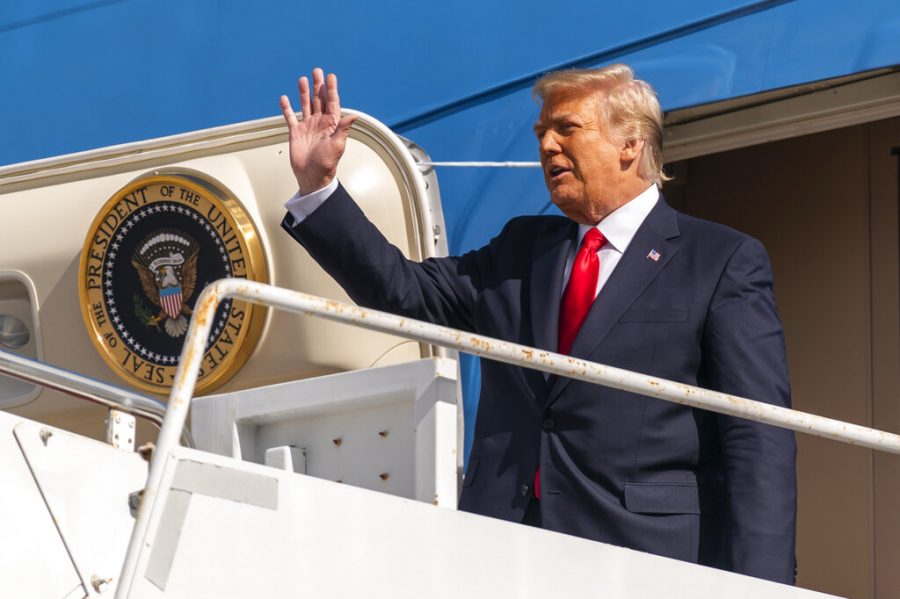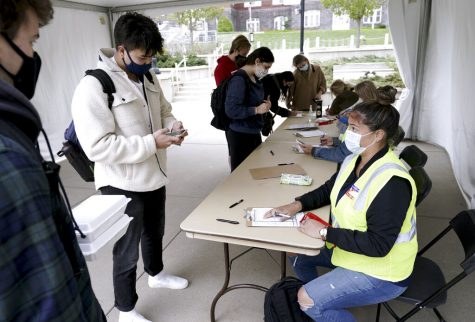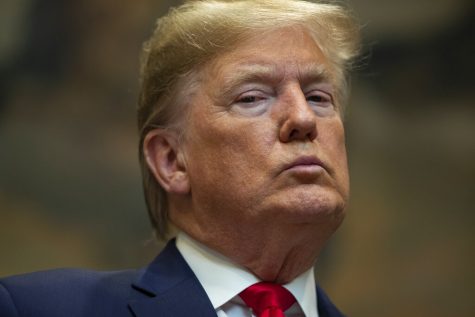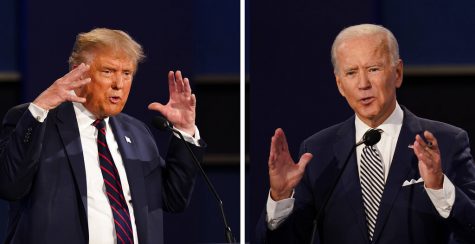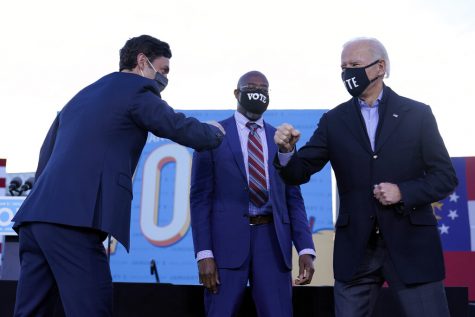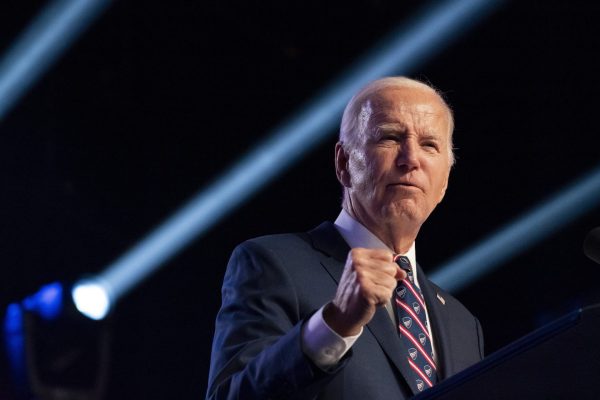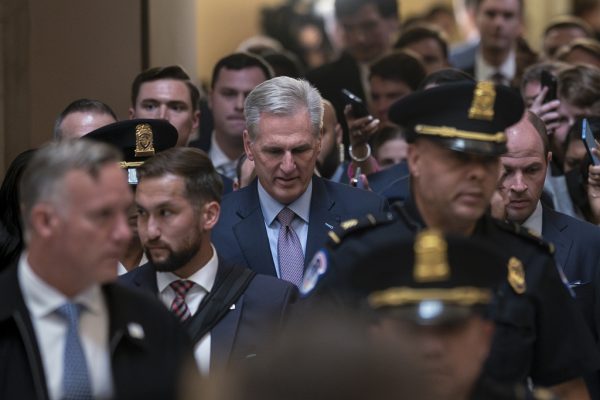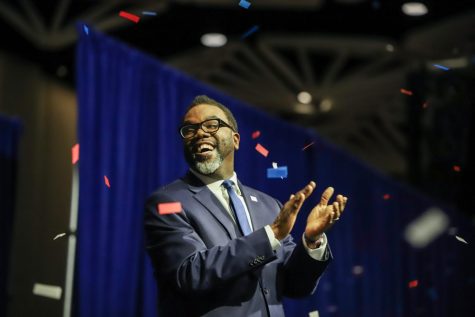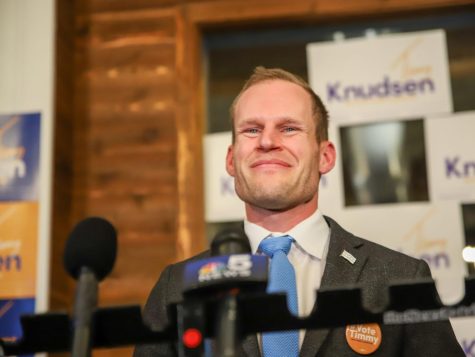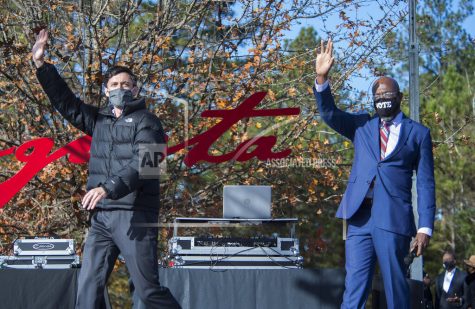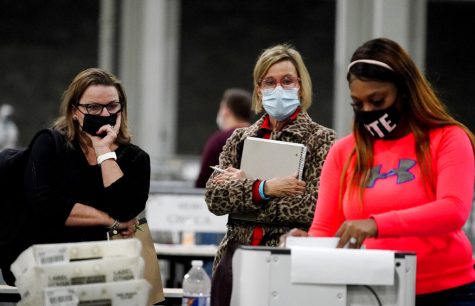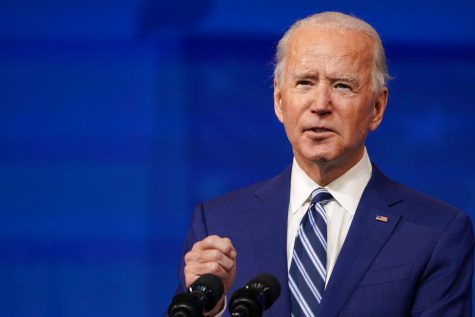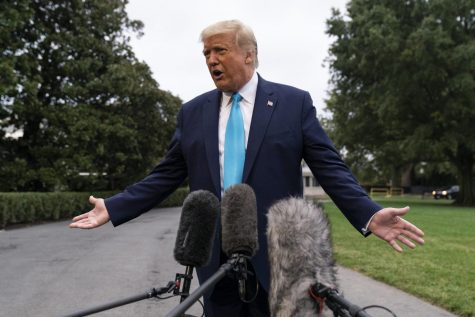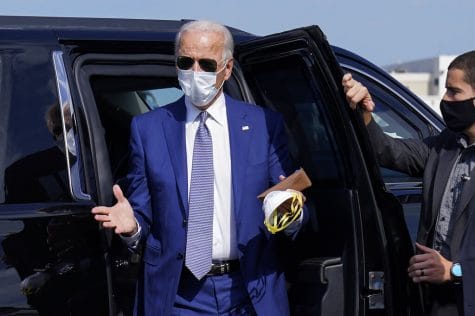Political Science Department discusses impeachment, inauguration in virtual panel
Former President Donald Trump waves as he disembarks from his final flight on Air Force One at Palm Beach International Airport in West Palm Beach, Fla., Wednesday, Jan. 20, 2021. (AP Photo/Manuel Balce Ceneta)
The Political Science Department held a virtual panel to discuss the second impeachment of former President Donald Trump, the inauguration ceremony and efforts to overturn the presidential election result.
The panel was moderated by Department Chair Scott Hibbard and was attended by panelists and political science professors Valerie Johnson, Wayne Steger, Erik Tillman and David Williams.
Hibbard reminded attendees that the views expressed by panel members are that of the individuals alone and do not reflect the views of DePaul University. The event was originally intended to be focused on the Jan. 6 Capitol riot, but was expanded as a result of unfolding events in national politics.
“But as we thought about the matter, it became clear that you couldn’t separate the takeover of the Capitol building from the broader effort of the President’s allies to create a false narrative around the election, and ultimately try to overturn the results of the election,” Hibbard said in his opening remarks.
Steger said that Trump’s presidency accentuated ongoing trends of racism and authoritarianism, which President Joe Biden attempted to counter in his inaugural address. Biden’s inaugural address was a message of unity, attempting to dismantle a culture of hyperpartisanship and the disintegration of truth that ran rampant during the Trump administration.
“Trump’s role wasn’t so much, you know, creating racism or fomenting it,” Steger said of Trump’s role in exacerbating deep-rooted issues in American democracy. “Rather, he was mainstreaming racism, bigotry and authoritarianism and, so, he accentuates divisions.”
Tillman, who specializes in comparative politics, discussed authoritarianism as a psychological disposition in which changes to that “cohesive” society are perceived as threats.
“Republicans are increasingly not a conservative party, they’re an authoritative party,” Tillman said. “So that’s, again, that’s a very different thing, it’s a very dangerous thing.”
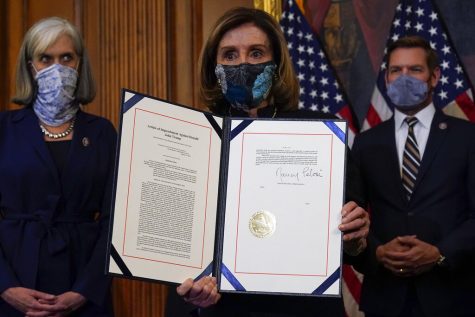
The European Council on Foreign Relations released a report, which Johnson referred to, that discusses European perceptions of American government amid the transfer of power to the Biden-Harris administration.
“Americans have a new president but not a new country,” the report begins.
Johnson said that it is important for Americans to remember their history in order to understand this current moment in American democracy.
“And it’s because we have not come to grips with how the social construction of public memory affects us down the line,” Johnson said.
When asked about a reason to be optimistic, Steger said that accountability is important and that starts with impeachment. Though he does not believe that the Senate will garner enough votes for conviction, Steger hopes that impeachment sends a message that the election results were valid.
Steger agreed with Johnson’s claim that the U.S. needs a “national reconciliation.”
“But if you can make this socially unacceptable, convince Americans that being racist is a problem, rather than a right and a freedom,” Steger said. “I think you’d go a long way towards what [Johnson] is talking about.”
Williams also agreed that there is a need for accountability regarding the insurrection.
“The article of impeachment voted on by the House last week is the most serious crime ever brought on a sitting president and there surely needs to be follow-through on that as well as follow-through with every culpable party that took place in that insurrection,” Williams said. “The rule of law, a democratic society, civil society demands that it happen.”
Though the panelists described the inauguration ceremony as hopeful, inspiring and symbolic, they also agreed that there is a significant amount of work to be done and the ceremony, as beautiful as it was, does not really change the state of the country.
“We’re as vulnerable as any other democracy,” Williams said. “And we need to be on guard against any further crumbling of it because we’re not that far from the edge.”


